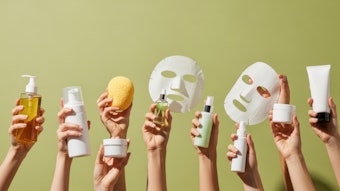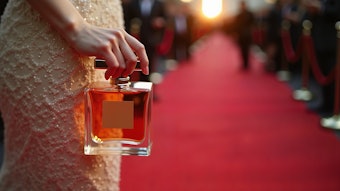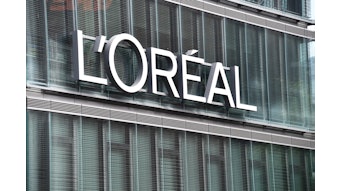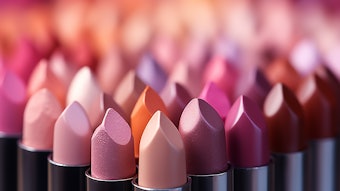Aseem Kaushik, director of the L’Oréal Professionnel products division in India, epitomizes the leadership qualities that have enabled him to feel the pulse of the market and form strategies by addressing the gaps in the hairdressing industry in India.
Kaushik has various initiatives to his credit—whether it is the push that L’Oreal has given to the cause of educating hairdressers through its International Hair Academy or devising a universal certification program and curriculum for hairdressers in the country, where L’Oréal Professionnel partners with leading salons to set up academies across the country. The recognition of the significance of the bridal market in India with launch of an inspirational collection was indeed a pioneering step Kaushik took in 2012.
And now, a similar gap in the professional skin care market in India is likely being addressed by Kaushik with L’Oréal’s purchase of Indian skin care brand Cheryl’s Cosmeceuticals.
Ritoo Jhha spoke with Kaushik about the acquisition, as well as L’Oréal's the overall direction of the Professionnel products division at L’Oréal.
Ritoo Jhha: It has taken almost two years for L’Oréal to arrive at the purchase of Cheryl’s? What motivated you, and why Cheryl's?
Aseem Kaushik: Beauty as a business within our existing distribution base is a huge opportunity. The contribution of skin care and beauty to the individual salon business in India might vary from 30% to 60%, depending upon the kind of salon you go to.
The skin care market in India is very fragmented. You have regional players who may be very strong regionally, but there is no pan-India player. The good part of it is that some of the regional players are quite sophisticated in terms of the products they offer, as the beauty market in India is quite evolved as compared to hair. Even if it wasn’t a multinational operating in this sphere, there have always been smaller, relatively strong Indian players with products and services being offered that are definitely evolved. We had to look particularly at some Indian players to get into this segment, and we narrowed it down to Cheryl’s Cosmeceuticals, which was very similar to the L’Oréal DNA. First, they are one of the oldest players in the market—almost 26 years old. It’s also a brand whose DNA mirrors L’Oréal’s DNA where the products are innovative, safe and effective, and the underlying principle of the brand is education. To me, that takes the cake.
Oscar [Pereira, owner of Cheryl’s Cosmeceuticals] himself has been a very big player in this sphere—he has educated so many people on so many things. They are doing such good business because of his passion. Moreover, both Oscar and Cheryl’s are formulators—they have come up with effective formulas that really work for Indian skin. These formulas have been authenticated by our own labs here in India. They [have some of the] latest ingredient and are quite in sync with the latest innovation, globally. Over the years, Cheryl’s has built big brand equity, and they fit very well into our overall plan.
RJ: Given Indians are generally very enthusiastic about the “herbal” brands, why did you not choose a brand with such claims?
AK: Generally, lower-priced brands are perceived to be “herbal,” except a few like Shahnaz who have been there for a very long time. Cheryl’s, on the other hand, is a cosmeceutical brand and combines science and nature to come up with a potent cornucopia of products.
RJ: Are you changing the packaging for Cheryl’s, and where are you positioning this brand?
AK: The packaging and so on has gone through some iteration. We will take the business as it is, and we will expand it with the power of L’Oréal distribution in India.
It will be positioned right across. They have an entire range to cater to A, B and C salons, and another range that is sold to wholesalers. So we will be targeting that segment as well directing it toward freelancers and beauticians operating at a micro-level from homes. We will tap that channel as well.
RJ: How many SKUs does the brand have, and how will you distribute the brand? What about education?
AK: They currently have 117 SKUs, we will sell all of them. The brand will be distributed and sold by the Matrix team. Matrix today has 50 education studios across India, and all we have to do is to put a bed there and start teaching skin. We will, overnight, have the largest education network for any skin care brand in India. Plus the distribution strength—99.9% of the salons we go to have skin care services.
RJ: Could you put a number to the purchase value? And what’s your vision for this brand?
AK: Well, the value cannot be disclosed, but we are proud to say that Oscar will continue to be with us. He will remain the founder and brand ambassador for Cheryl’s. We will keep the brand in its entirety. We will not take the brand and stick a Matrix or L’Oréal label on it.
We are keeping the entire essence of the brand and trying to make it big. This will be the first brand from India in the L’Oréal world that has been acquired, and we will make sure that, as an Indian team, we make it really big so that the Indian brand can be in lot of other countries.
RJ: L’Oréal Professionnel is a brand in your division facing tough competition with lots of others having entered this category in India. So, what’s your take?
AK: All competition is welcome. But that competition has to do 15 years of education that we have already put in. All the best to them. This year alone, we will be training 125,000 hairdressers—and multiply that by 15 years. That’s the kind of effort any brand will need to gain a foothold in any of our salons.
RJ: Are you looking at skin care education? What about your own academy?
AK: L’Oréal India’s Professionel products division will become a complete portfolio of products. We will have skin education as well. We will use our academy to train more trainers. We are looking at producing 15,000 hairdressers in the next five years by training them from scratch. We want 15,000 young kids to become hairdressers.
RJ: How will you do that? What will you do attract youngsters to this profession?
AK: You shall see more and more hairdressers being valorized. Once they know that graduating from a certain academy gets them a good job, more are likely to come forward.
RJ: What are your concerns?
AK: Lots of spurious/not-so-safe products are entering the market in India. That’s not the right direction. Everyone who is in serious product business has to unite against such tendencies that damage the health of consumers and hairdressers alike—products that contain formaldehyde, products that claim to be Italian but are being operated by fly-by-night operators. Since they are cheap, people get tempted. We have to make sure that awareness is created.
RJ: Any ideal rates of growth?
AK: The market normally grows three times the GDP, and within that, depending upon how good your business plans are, a brand will grow.










